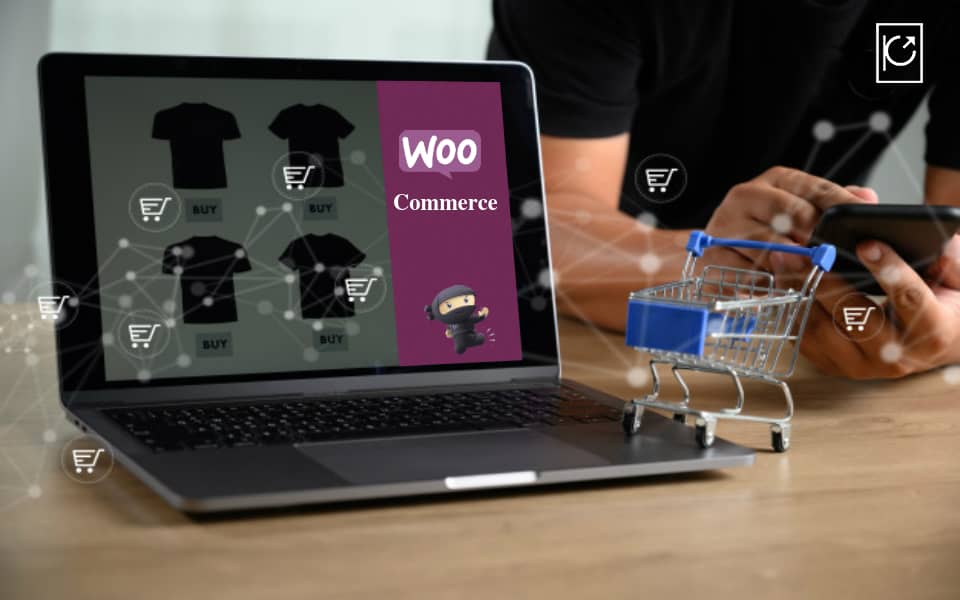Nowadays, having an online footprint is practically a requirement if you want to compete effectively in business. Since the majority of consumers shop mostly online, developing an e-commerce site is a wise investment. Unfortunately, you'll need to discover a strategy to promote your website online, so that is not enough. That is what a successful social media marketing plan can achieve.

Among the most reliable and effective sales strategies for eCommerce firms is social media marketing. Companies might choose to take the more indirect way with highly-targeted marketing campaigns or go the more sensible approach by patiently cultivating an organic following. Social media platforms are being used by e-commerce marketers to increase brand recognition, engage with consumers, and advertise products through targeted adverts and organic posts.
We’ll go through how to leverage social media e-commerce to expand your business in this blog.
6 Ways Brands Can Use Social Media For E-Commerce
Increase Brand Recognition
Social media is the best marketing platform for creating buzz. It’s the ideal setting for advertising your brand-new store, goods, services, activities, or promotions. Additionally, it works well for interacting with your intended audience.
Develop a consistent advertising plan with a united voice and message to successfully increase brand recognition. Create content for a variety of platforms and formats. Engage in conversations with users directly about trending themes, hashtags, and topics.
2. Advertise
Social media is the most effective advertising platform currently available. The reach of social media advertisements is enormous and expanding quickly. There are large audiences. It is too big. Because of this, many social channels have strong targeting and segmentation features as well. To properly advertise on social media, be sure to:
- Determine your audience and marketing objectives.
- Adding targeting criteria will help you focus on that audience.
- To reach them, develop an engaging content strategy.
- Set objectives and KPIs for every channel.
- Pick various ad types which correspond to your objectives.
- Choose the appropriate conversion metrics
3. Directly Market Things On Social Media
Social commerce is now simpler than ever. Four social media platforms currently offer native-designed support for social selling including Facebook, Instagram, Pinterest, and TikTok
Additionally, Shopify has worked with Twitter and Snapchat to develop its social commerce capabilities. Therefore, social commerce and social media e-commerce marketing intersect. Utilizing social commerce solutions has several advantages, such as:
- The setup is free.
- They produce captivating, engaging online purchasing experiences.
- They make sales more efficient.
- They increase the locations where sales are permitted.
- They permit headless trade.
- They enable you to produce real-time store experience
4. Establish Brand Trust
Building brand trust is essential if you want to be successful in an online business as your customers can’t touch, feel, or smell your goods and can’t be sure that their data is secure once they make a purchase.
Like brand recognition, brand trust takes time to develop, but with lots of effort put into your website design, product delivery, customer service, and other aspects of your business, you can succeed in doing so. The good news is that you can accomplish it with the aid of a well-designed social media marketing plan.
5. Customer Support
Without considering customer support, neither social media e-commerce plan is effective. Social media channels are excellent for maintaining and assisting current clients. As a result, they now serve as the primary method of customer service for the majority of well-known brands. Customers potentially access your profile to find out more, pose inquiries, give comments, engage with your product and give them information about what they want.
Incoming comments and direct messages need to be handled, therefore brands and social media executives need to be ready. If you are unable to, an e-commerce chatbot could be able to assist you. Ensuring your social accounts are dynamic seems to be another reason to do so, in addition to offering a positive user experience. Prospects will observe customer interactions in public. This will affect the degree to which they desire to buy. How you respond to complaints in public is a clear indication of how you respond to them privately.
6. Social Listening
Social media can serve as a resource for your business if you have the correct tools. Searching social media for references of your business or pertinent conversations is known as social listening.
Social listening, according to 67% of marketers, is an effective technique to monitor and comprehend the needs of their clients. Additionally, it provides priceless information like which goods are the most popular and w Where potential recurring difficulties or problems may be. Also the perceptions of your brand among customers etc. By doing so, you may fix problems, exploit opportunities, and adjust your message to better suit the needs of the market.
The Importance Of Social Media For E-Commerce Brands
It was a widely held opinion that using social media for eCommerce was indeed a bit tricky; there was no obvious financial benefit to the company, and although it could work for some companies, it might not work for us.
Today, eCommerce companies cannot afford to have that impression. Every sort of business may use social media to increase sales or expand, with very real benefits. The main motivation that for almost all businesses is that the clients are on social networks; reaching them through marketing is very cost-effective; and it contributes to building a strong brand.





